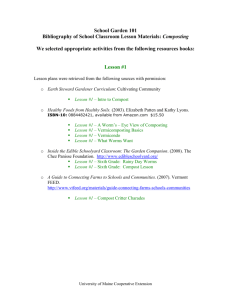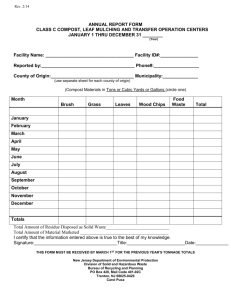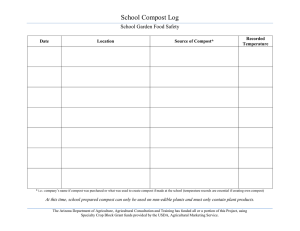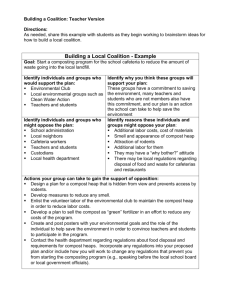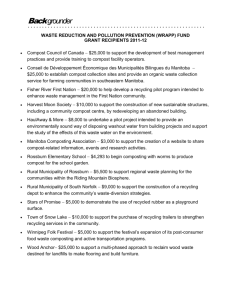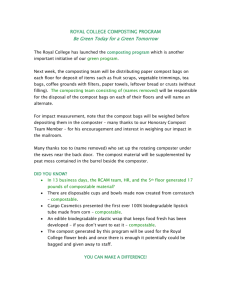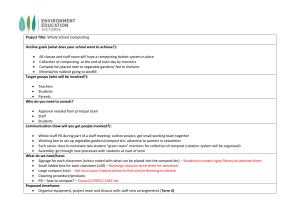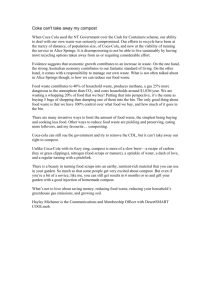Why Compost? Composting helps the environment by reducing the
advertisement
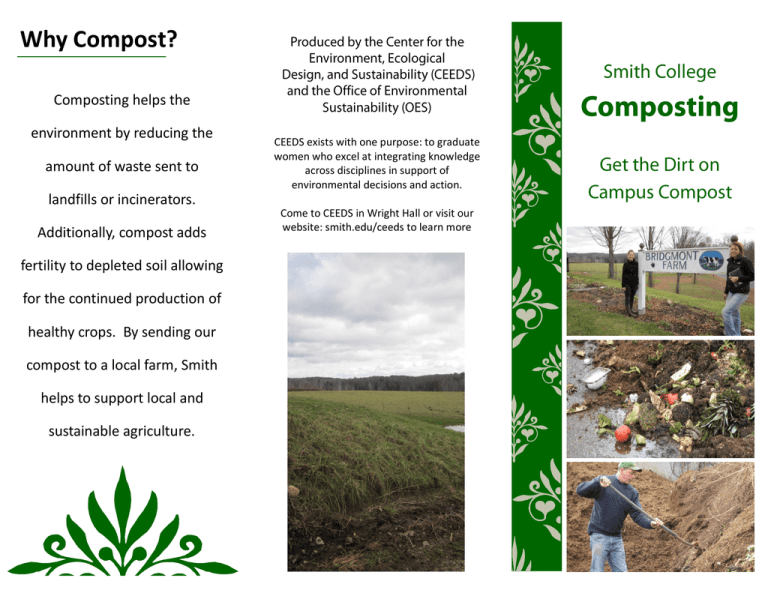
Why Compost? Composting helps the environment by reducing the amount of waste sent to landfills or incinerators. Additionally, compost adds fertility to depleted soil allowing for the continued production of healthy crops. By sending our compost to a local farm, Smith helps to support local and sustainable agriculture. CEEDS exists with one purpose: to graduate women who excel at integrating knowledge across disciplines in support of environmental decisions and action. Come to CEEDS in Wright Hall or visit our website: smith.edu/ceeds to learn more Facts About Compost What is compost? Compost is best described as the product of decomposed organic matter. Smith composts food waste from the dining halls and manure from the equestrian stables. Composting at the Dining Hall Compostable Food scraps Coffee grounds Tea Bags (metal parts removed) Paper napkins (shredded if possible) Small amounts of cooked protein Non-Compostable Where does Smith send compost? Smith sends their compost to Bridgmont Farm in Westhampton, Massachusetts where it is used to amend the soil and restore pasture. The farm raises grass fed beef and produces maple syrup. “Compostable” products (the farm that receives compost is not equipped to process biodegradable silverware and containers) Large amounts of oil products (mayonnaise, salad dressing) Bones Liquids Plastic or metal Fats (butter, cream, peanut butter) Grab and go containers How does composting work? Compost is product of decomposed organic matter. Given the correct environment (carbon: nitrogen ratio, oxygen, moisture level) bacteria work quickly to break down organic matter rendering it compost. Ideal compost is a blend of various materials including nitrogen rich waste like grass clippings, fruits, vegetables, and coffee grounds as well as carbon rich materials, like straw. The importance of compost In order for plants to grow successfully they require certain things- most of us are familiar with the list: sunlight, air, water. But plants also require minerals, nutrients, and organic matter to grow successfully. Adding compost to your soil each season replenishes the organic matter that is removed by previous crops and allows for continued growth. Composting reduces waste that is transported (typically by CO2 emitting vehicles) to landfills where it becomes a wasted resource.
